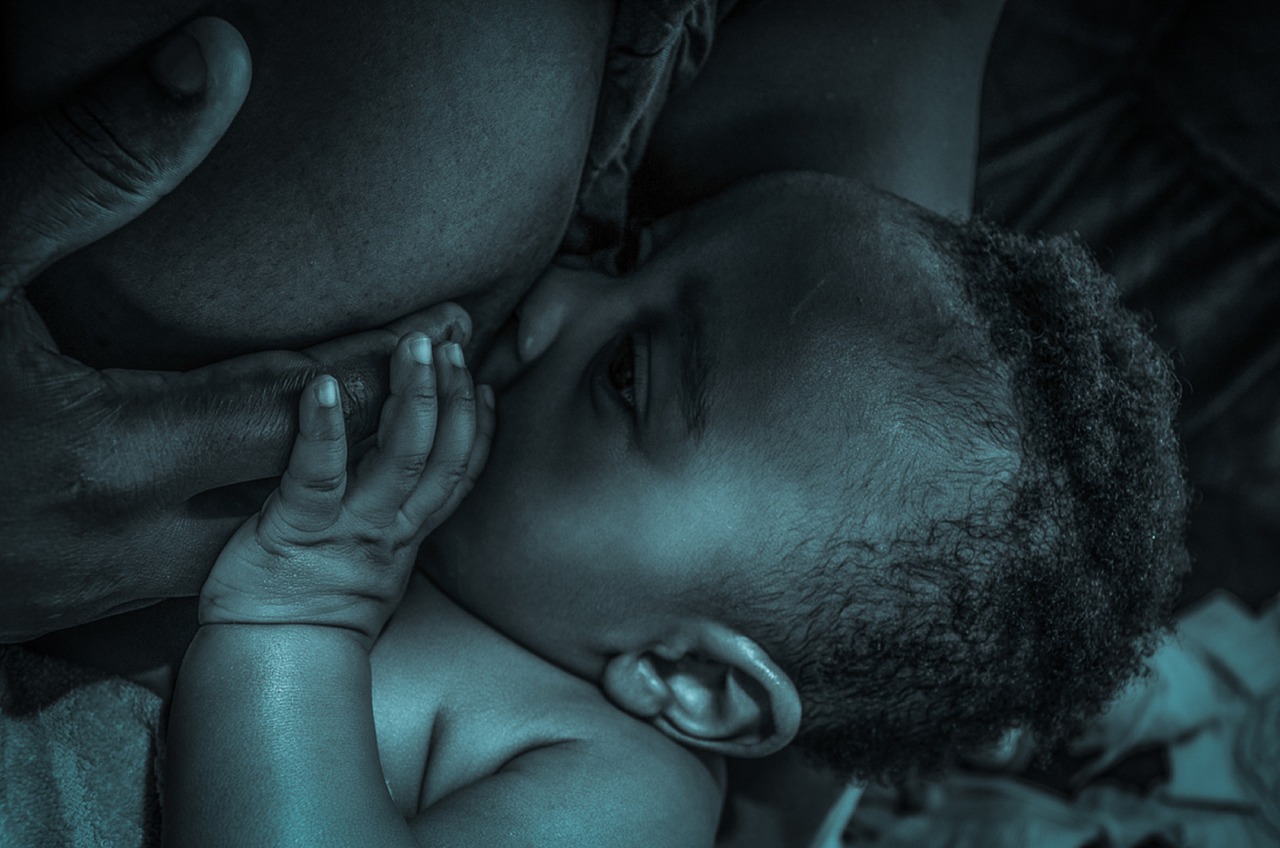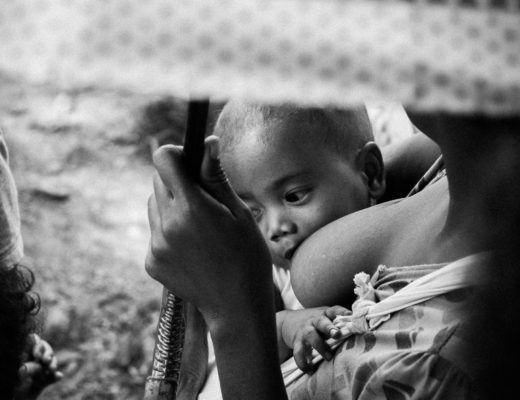According to the Centers for Disease Control (CDC), infants who are breastfed are less at risk for asthma, eczema, type 2 diabetes, Sudden Infant Death Syndrome (SIDS) and more. Moms who breastfeed return to their pre-pregnancy weight more quickly, and show a decreased risk for breast and ovarian cancer, high blood pressure, and type 2 diabetes.
Breastfeeding recommended for 12 months
The American Association of Pediatrics (AAP) recommends exclusive breastfeeding for 6 months, with breastfeeding continuing along with solid food for at least 12 months and as long as desired thereafter. The CDC supports this recommendation. The World Health Organization (WHO) recommends breastfeeding up to two years or more.
Racial disparities in breastfeeding rates
In 2017, the CDC reviewed National Immunization Data from 2011-2015. According to the data, breastfeeding was initiated with 64% of Black infants, versus 81% of white infants and 82% of Hispanic infants.
This difference translates to 85,000 fewer Black children per 500,000 births (320,000 (64%) vs 405,000 (81%)) receiving the benefits of breastfeeding.
Why the disparity? It’s complicated
Some contributing factors to lower breastfeeding rates include myths about breastfeeding and transgenerational trauma stemming from the history of slave women being forced to wet nurse at the expense of their own children. There is a documented lack of breastfeeding initiation, education, and support in hospitals that service Black mothers. There is at times a need to return to work sooner or a lack of family support.
Lactation professionals creating change
In light of these challenges, several organizations and individuals have taken the initiative to promote breastfeeding in the Black community. Lactation support professionals and breastfeeding moms have started a movement to reclaim breastfeeding for Black moms through personal stories, awareness campaigns, support groups, events, and more. See our list below for details.
Books
Free to Breastfeed: Voices of Black Mothers
Events
Healing Ourselves: Eliminating Inequities in Breastfeeding (Atlanta, GA)
Lactation Consultants
A Mother’s Answer (Forest Park, GA)
Feed the Babes (Detroit, MI / Windsor, Ontario)
Jamaa Birth Village (Ferguson, MI)
Journ3i (Providence, RI)
Latch Breastfeeding and Lactation Services (Newark, NJ)
Nekisha Killings (Los Angeles, CA)
S N Turner and Associates (Oak Park, IL)
Stork and Cradle (New York, NY)
Tamika Harris (Washington, DC)
Uzazi Village (Kansas City, MO)
Organizations & Initiatives
African American Breastfeeding Network (Milkwaukee, WI)
Black Breastfeeding Week (Local/Online)
Black Mothers’ Breastfeeding Association (Detroit, MI)
Perinatal Health Equity Foundation (Newark, NJ)
Reaching Our Sisters Everywhere (ROSE) (Lithonia, GA)
Soul Food for Your Baby (Hawthorne, CA)
Support Groups
Black Moms Do Breastfeed (Facebook group)
Black Mothers’ Breastfeeding Club (Detroit, MI / Shreveport, LA)
Chocolate Milk Cafe (Kansas City, MO)
Chocolate Milk Cafe New York/New Jersey (Newark, NJ / Yonkers / Brooklyn / Harlem, NY)
Chocolate Milk Cafe Rhode Island (Providence, RI)
Cubs Cafe Breastfeeding Support Group (Facebook group)
Database of Lactation Support Groups for Families of Color (Various)
Sistahs Who Breastfeed (East Orange, NJ)
Sistahs Who Breastfeed Camden County (Lindenwold, NJ / Pennsauken, NJ / Winslow, NJ)
Websites
Brown Mamas Breastfeed Project (use links at the top of the page)
Videos
Chocolate Milk: The Documentary
Chocolate Milk is a documentary series produced and directed by Elizabeth Bayne. This series follows women in the first months of their newborns’ lives to examine the experiences and challenges Black women face in their breastfeeding journeys.
Teach Me How to Breastfeed
This list wouldn’t be complete without this hilarious yet informative video from California IBCLC Tanefer Lumukanda. In this parody of Teach Me How to Dougie, Tanefer teaches important breastfeeding concepts using music and humor.
Further Reading
How Does Race Impact Childbirth Outcomes? (Georgetown University)
Why experts believe persistent poverty, chronic stress and lack of access to health care providers are some of the factors that explain the problem of America’s high maternal mortality rates.
National Women’s Health and Breastfeeding Helpline
Can’t find the support you need? Call the National Breastfeeding Helpline at 1-800-994-9662 Monday through Friday, between 9 am and 6 pm ET.






